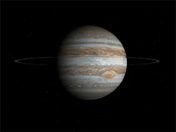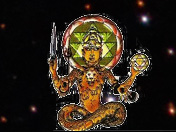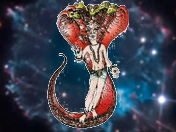Planets and Five Human Values
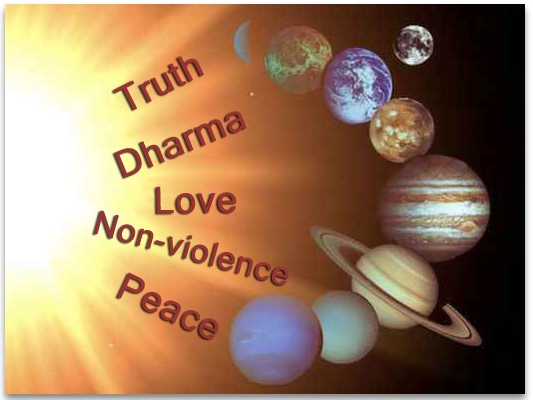
Overview of Values
The five human values given by Sathya Sai Baba are composites of human qualities and behaviours. Truth (Sathya) is the basis of the Universe and all other values. All the worlds rest on truth, it resides in all times, time past, time present and time future. As such, it is an eternal value, innate, knowable by all, and able to be elicited from within.
All planets are gods; all planets are embodiments of the Kalapurusha and deliver the harmony of the universe through the seven rays. The light come to us through the Sun which is the source of all life. From the Sun, the light is split into seven rays, which is reflected by the nine planets. All planets reflect the paramjyothi - the supreme light in their duty of delivering the cosmic harmony of the seven rays.
Each planet in its orbit both gathers in and gives out forces, transmitting a particular wavelength of energy necessary for the order fo the solar system. The Planets are perpetually flashing forth with different patterns of energy, weaving the web of life and creation. So also, the Planets influence both educare – eliciting the resident values within – and the practice of the five human values.
Planets and Human Values: Birth
We are born again, womb after womb, caught every time in the birth snare as Mirabai (Bhakta Meera) put it in one of her poems. It is the duty of the planets to take the seven rays, and use them in various amounts and blendings to deliver and proclaim, along with Lord Brahma—at birth—the number of breaths to be taken, the predispostions, the needful body, the events that will occur, the occupation, the spouse and children, the wealth or lack of wealth, the family, and the death of the body. All this at each moment of birth, the planets deliver. Also delivered are the eternal capacities within, the five human values, Sathya - Truth, Dharma - Right Conduct, Prema - Love, Shanti - Peace and Ahimsa - Non-violence. All these capacities are latent within, resting in the intellect, placed there by the various combinations and recombinations of the seven rays, given by the planets to the kosas, the sheaths surrounding the human form.
Human Values
What are Human Values? Human Values are those universal concepts, drivers of action which are found in all cultures, all societies, all times and in all places where human beings eke out their lives. The five human values, which can be found in all cultures, all societies and in all religions, are Truth, Right Conduct, Love, Peace and Non-Violence. These values are eternal; they are eternal essences, which elevate human life to its highest expression, its highest capacity. Click the image below to view full size in a new window.
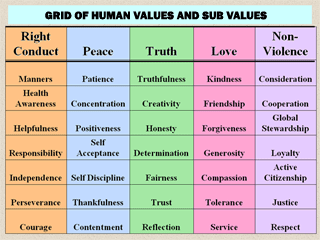
Click the Image to view a larger image
These values have to be elicited. Educare means to bring out that which is within. We will look at the five values of Truth, Right Conduct, Love, Peace, Non-violence and their sub-values (behaviours, attitudes and choices which embody these values) and point out how planetary remedy, sadhana and personal effort will help you to understand the influence of these values on the mind and the light within the body—and how this is distributed within—so you may understand these energies of these planets and harness the facet of human values which they are karakas (dispositors of) in an effective and useful manner.
Planets, Human Values and sub-values
| Planet | Value | Sub-Value | Page Link |
|---|---|---|---|
| Venus | Love | Tolerance | Examine aspects of Moon and Tolerance |
| Venus | Love | Generosity | Examine aspects of Venus and Generosity |
| Mercury | Love | Joy | Examine aspects of Mercury and Joy |
| Mars | Peace | Inner Strength | Examine aspects of Mars and Inner Strength |
| Mars | Peace | Fearlessness | Examine aspects of Mars and Fearlessness |
| Rahu | Truth | Self-Awareness | Examine aspects of Rahu and Self Awareness |
| Venus | Peace | Contentment | Examine aspects of Venus and Inner Contentment |
| Sun | Truth | Conscience | Examine aspects of The Sun and Truth and Conscience |
| Saturn | Truth | Discrimination | Examine aspects of Saturn and Discrimination |
Sai Baba Tells: Navaratri represents the Nine Planets
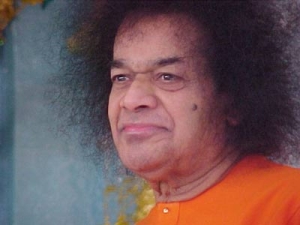
As part of Navaratri celebrations, people worship different forms of divinity. You should develop sacred feelings and experience divinity. What is the inner meaning of Navaratri celebrations? These nine nights represent nine planets. Each planet has its own significance. However, these planets are not outside, they are within. If your feelings are impure and unsacred, the result also will be the same. You are responsible for the good and bad you think and experience. They are not the products of outside world. They are the reaction, reflection and resound of your inner being. Man faces the vicissitudes of life as he is bound by these three. But he forgets these three and tries to search for solutions to his problems. He thinks he is highly intelligent. In fact, that is not true intelligence. He lacks faith in Divinity. That is the real cause of his suffering. God is one. Likewise human beings are one though Akara (forms) and Acharana (behaviour) may vary. But due to his narrow-mindedness, man is unable to understand this unity. (Prashanti Nilayam, 17-10-2004)
Strive to secure Grace, not any lesser fruit
Embodiments of Love!
Along with the acquisition of secular knowledge, you should also make efforts to understand the principle of oneness. Only then can you achieve unity and harmony. Take for instance this rose flower. It consists of a number of petals. Likewise, our heart can be compared to a flower and the virtues are like petals. The petals of a rose flower may fade and fall by the next day, but the flower of heart remains ever fresh. It symbolises the principle of oneness. People worship the Navagrahas (nine planets) to invoke their blessings. You might have observed that there is perfect unity and harmony among the nine planets. (Sathya Sai Baba ... with a wave of his hand materialised a gold ring studded with nine types of gems...) Here you see a Navaratna ring. Whoever wears this ring will be protected by the Navagrahas wherever he goes.
Prashanti Nilayam, 17th August 2005





